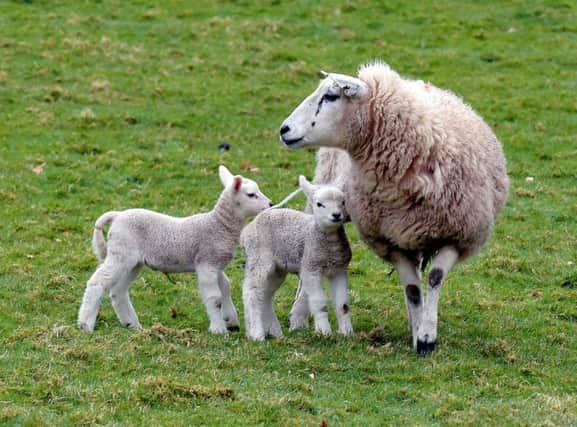Sheep used in Aberdeenshire to eat poisonous hogweed


The giant hogweed puts children at risk because they can be tempted to use its hollow stems as “pea shooters”.
But the plant’s “vitriolic” sap causes major skin irritation which often leads to hospital treatment.
Advertisement
Hide AdAdvertisement
Hide AdThe “woolly weapon” is being deployed in the battle against the invasive plant on the River Deveron in the north east of Scotland.
A flock of a dozen sheep will be arriving on location near Huntly, Aberdeenshire, next week, to start the important work of munching through the invasive giant hogweed plants growing there.
Reaching heights of 2-3m, giant hogweed not only causes harm to our native wildlife by dominating sites and shading native vegetation, but its harmful sap makes mature and dense stands of the plants difficult to remove.
Normally chemical spraying by trained and protected staff is the most effective treatment method. However, following an “encouraging trial by the Deveron, Bogie & Isla Fishery Trust in 2013 grazing by sheep is being further investigated as a viable alternative.
The sheep suffer no ill-effects from the toxic sap and develop a taste for the plant, happily grazing it alongside other vegetation.
Richie Miller, Director of the Deveron, Bogie & Isla Rivers Trust said: “The previous trial showed a significant reduction in seedlings, with no evidence of plants reaching maturity during the three-year grazing period. This was a really inspiring and important outcome and this new trial will allow us to build on the previous findings and undertake more essential research to demonstrate the effectiveness of grazing in hogweed control.”
The new trial is supported by The University of Aberdeen who are monitoring the site to produce a full evaluation of the grazing project in terms of both the effectiveness and costs. This will help to determine whether this is a viable and cost-effective option for giant hogweed control in Scotland and, potentially, elsewhere. The grazing trial is part of the Scottish Invasive Species Initiative, an ambitious four-year project led by Scottish Natural Heritage and funded by the Heritage Lottery Fund, which is working across northern Scotland to tackle the problem of Invasive Non-Native Species.